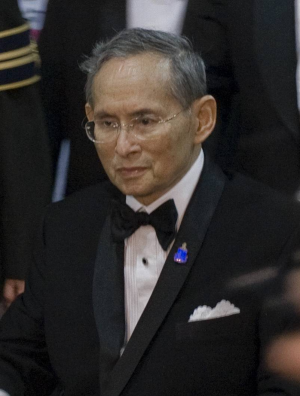Man arrested for allegedly insulting Thailand's king on Facebook


Thailand's rulers have long used criminal insult charges to silence political opponents. Surapak's case, however, appears to be the first of its kind since a new government under Prime Minister Yingluck Shinawatra took power in August. Shinawatra pledged to crack down on alleged online royal insults.
Lomrak said his client insists he is innocent, and denies all allegations of insulting the monarchy. He is now being held in a Bangkok jail. Police have also confiscated his desktop and laptop computers.
Thailand is a constitutional monarchy but has a lese majeste law that prohibits any criticism of the monarchy by painting it as governmental disloyalty. Any person who is convicted of defaming, insulting, or threatening the king, the queen, the heir to the throne, or the Regent faces three to 15 years in prison. The country also has a 2007 Computer Crime Act prohibiting online statements that jeopardize national security or cause panic. Surapak has also been accused of violating this law, which carries a maximum jail term of five years and a fine of 100,000 baht ($3,300).
Any Thai citizen can make a complaint under the lese majeste law against any Thai or foreign citizen in Thailand. Once the complaint has been made, the police are duty-bound to investigate. Once the process of lese majeste has started, it is rarely dismissed.
In the last few years, the number of lese majeste cases in Thailand has soared. There had been hopes that a change of government would reverse the trend but the opposite seems to be happening. Human rights groups have criticized the law for being used by officials to limit freedom of expression.
See also:
- Egyptian activist charged with inciting violence via Facebook
- Two teenagers arrested for Facebook posts inciting UK riots
- Men make death threats on Facebook, go directly to jail
- Student arrested for threatening principal on Facebook
- Zimbabwe makes arrest over Facebook comment
- Man brags about evading cops on Facebook; gets arrested